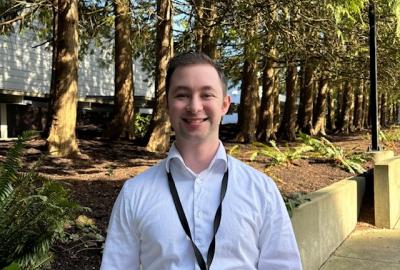
World Mental Health Day on October 10th, 2023, focuses on the theme presented by the World Health Organization's statement, "mental health is a universal human right". This day of awareness advocates for equitable, high-quality mental health care for all, recognizing that an alarming one in eight individuals worldwide struggles with mental health challenges. These struggles often manifest in different parts of life, including career decision-making and job searching. Let’s consider Indigenous perspectives of wholistic well-being, reciprocity, and talents as gifts.
In a world where mental health is increasingly recognized as a universal human right, it's essential to consider how this intersects with our career choices and life paths. Indigenous teachings offer an interesting perspective on this concept, viewing mental wellness as intertwined with our physical, emotional, and spiritual health. World Mental Health Day promotes awareness and advocacy for equitable high-quality mental health care for all, recognizing that an alarming 1 in every 8 individuals worldwide struggles with mental health challenges. These struggles with mental health can often manifest in different parts of life, including career decision-making and job searching. As we navigate this topic, let's look at how Indigenous perspectives see overall well-being, reciprocity, and natural skills as sacred gifts.
Indigenous Teachings
Indigenous teachings often see natural skills as gifts to be nurtured from childhood. These abilities are not just talents; they are considered sacred gifts that you’re meant to share with your community. The quote, “It is understood that these gifts have a dual nature though: a gift is also a responsibility,” from Robin Wall Kimmerer in Braiding Sweetgrass is perhaps the best way to explain the Indigenous value of reciprocity.
In adulthood, we are called to help younger generations identify their gifts. It is an individual’s responsibility to acknowledge and nurture their gifts and talents, but the journey is made smoother with validation and support from the Elders, teachers, coaches, friends, and family. These gifts or talents can often serve as clues to potential career directions or job opportunities. Recognizing your gifts is just the start. Figuring out how to share your gifts to the world is what career and job search is all about.
What does wholistic well-being mean, and how does it affect mental health and career search? Integrating perspectives from Indigenous worldviews offers a comprehensive framework for understanding mental wellness by acknowledging individuals as complex beings made up of mental, physical, emotional, and spiritual dimensions. In Indigenous teachings, your natural skills are seen as special gifts meant to be shared with the community. This aligns with the idea that well-being involves acknowledging and nurturing these gifts, forming a crucial link to mental wellness and guiding career paths.
The Medicine Wheel

Photo source: Pinterest: Anishinaabe-medicine-wheel
The Anishnaabeg are a collective of nations primarily situated around Ontario's Great Lakes, though their territory extends into other provinces. It's important to note that Canada is home to over 630 First Nations communities, speaking more than 50 unique languages, as well as the Métis Nation and the Inuit People. This rich diversity brings with it a range of distinct knowledge systems. One wholistic model to consider is the Medicine Wheel, used by some Indigenous Peoples like the Anishnaabeg.
The Medicine Wheel is illustrated as a circle divided into four quadrants, emphasizing balance for wholistic well-being, including mental health. It shows how mental wellness relies on a balanced interconnection among the mind, body, heart, and spirit. The cycle appears to begin with the mind at the top, but you can consider yourself anywhere on the wheel at any given time.
Consider the Medicine Wheel as a guiding framework even in the practical aspects of job-seeking. For instance, when you make mind-driven decisions, such as applying for jobs and attending interviews, emotions like anxiety may arise. Recalling your skills and talents at this stage helps you acknowledge core values, self-worth, and your resilient nature — elements represented in the Medicine Wheel. Staying rooted in these values directs your job-seeking decisions, from applications to final job acceptance.
Balance and Wellness
But what happens if your wheel is out of balance? For instance, if the mind is over-engaged, other quadrants like emotional well-being or physical fitness may be depleted. To stay balanced, consider a wholistic approach. Ensure you get adequate sleep, nourish your body, exercise, and connect with nature and loved ones. Laughter and spending time outdoors are especially effective for mental wellness. There’s a reason your Mom told you to play outside and get fresh air.
Now let's reflect on your personal medicine wheel: draw a circle and determine the size of each of your four quadrants. Are you neglecting certain aspects such as sleep, exercise, or enjoying quality time with friends? Taking even small steps toward balance can significantly improve your mental well-being.
Integrating Indigenous teachings, like those of the Anishinaabe, which focus on a balanced connection among mental, emotional, physical, and spiritual aspects of life, can transform tasks like career or academic planning into a more meaningful journey. This balanced framework doesn't just improve job or academic performance; it elevates your overall state of mind, reinforcing the notion that mental health is not a privilege but a universal human right that deserves to be nurtured and protected. I hope you find a better balance. All our relations.















